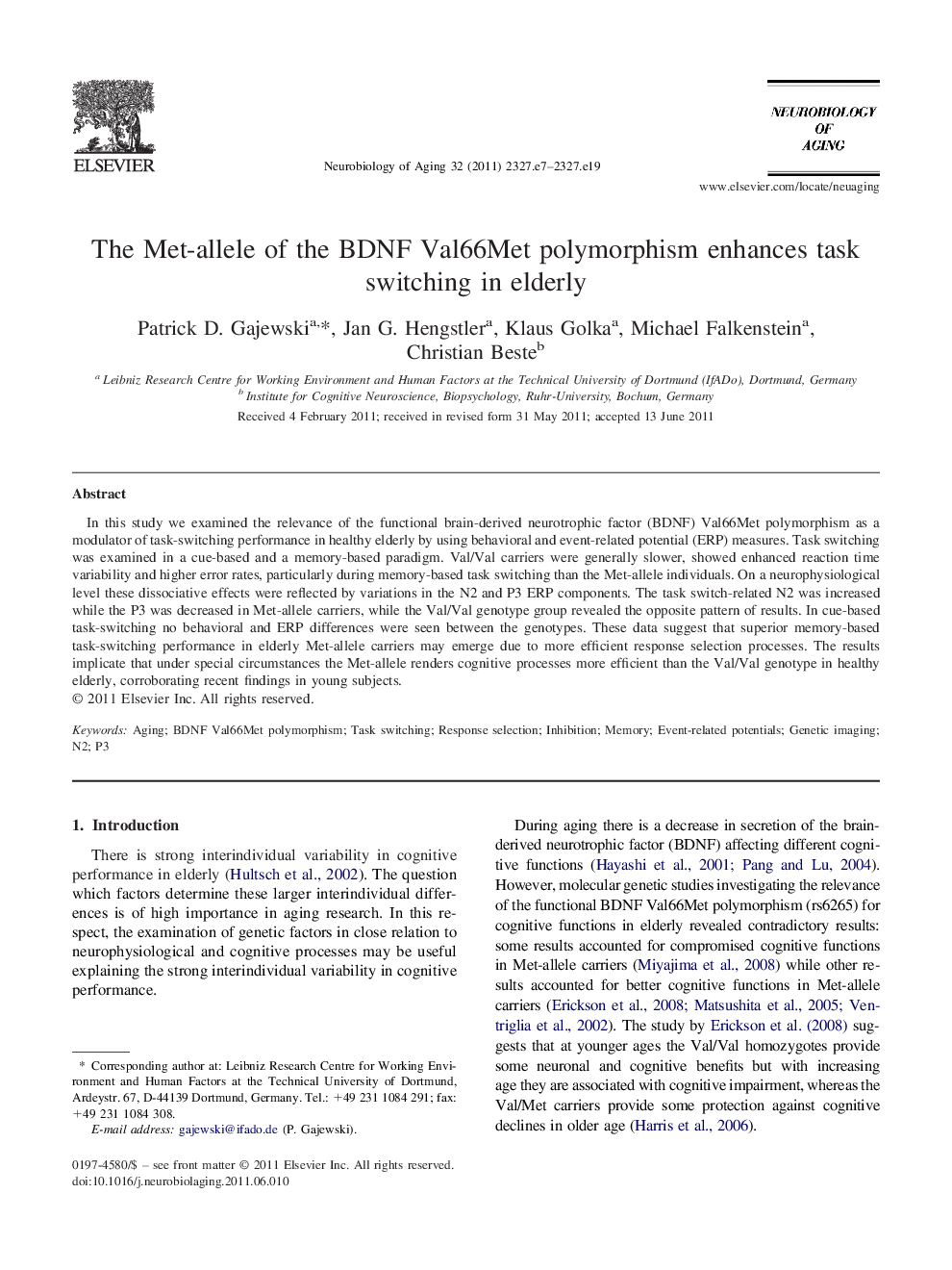| Article ID | Journal | Published Year | Pages | File Type |
|---|---|---|---|---|
| 329169 | Neurobiology of Aging | 2011 | 13 Pages |
Abstract
In this study we examined the relevance of the functional brain-derived neurotrophic factor (BDNF) Val66Met polymorphism as a modulator of task-switching performance in healthy elderly by using behavioral and event-related potential (ERP) measures. Task switching was examined in a cue-based and a memory-based paradigm. Val/Val carriers were generally slower, showed enhanced reaction time variability and higher error rates, particularly during memory-based task switching than the Met-allele individuals. On a neurophysiological level these dissociative effects were reflected by variations in the N2 and P3 ERP components. The task switch-related N2 was increased while the P3 was decreased in Met-allele carriers, while the Val/Val genotype group revealed the opposite pattern of results. In cue-based task-switching no behavioral and ERP differences were seen between the genotypes. These data suggest that superior memory-based task-switching performance in elderly Met-allele carriers may emerge due to more efficient response selection processes. The results implicate that under special circumstances the Met-allele renders cognitive processes more efficient than the Val/Val genotype in healthy elderly, corroborating recent findings in young subjects.
Keywords
Related Topics
Life Sciences
Biochemistry, Genetics and Molecular Biology
Ageing
Authors
Patrick D. Gajewski, Jan G. Hengstler, Klaus Golka, Michael Falkenstein, Christian Beste,
